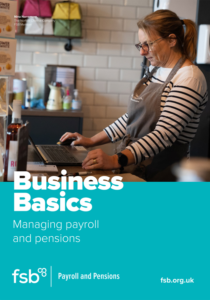
A version of this article was first published in June 2023
What is a P11D?
Whether it’s gym memberships, company cars, or health insurance, if your employees receive perks from the company on top of their regular salary, you’ll need to submit a P11D form.
A benefit in kind is anything of monetary value that your business gives to an employee that is not ‘wholly, exclusively, and necessary’ for their job. They’re included in taxable pay when calculating PAYE deductions, so you need to declare them
This form is used to declare any benefits that you’ve given to your employees in the previous tax year so that HMRC can calculate the Class 1A National Insurance contributions owed. It’s an important part of running payroll as a small business owner to ensure you remain compliant.
What is a P11D(b) form?
A P11D(b) summarises the individual P11D forms that you’ve completed for your employees, detailing the amount owed.
When is the deadline?
The deadline to submit your P11Ds and P11D(b) is 6 July 2024 for the 2023/24 tax year.
As it’s based on the financial year, not your company year, the deadline is always 6 July following the relevant tax year.
The payment deadline is 22 July 2024 if you’re paying electronically.
Who needs to file a P11D?
As an employer, it’s your responsibility to complete and submit a P11D form for any employee receiving benefits in kind. You’ll need to use a separate form for each member of your team.
Not every business has to submit automatically. If an employee hasn’t received any taxable benefits during that financial year, for example, then you won’t need to file a form.
You also don’t need to submit a P11D form if you’re paying tax on the benefits through payroll. Instead, you’ll simply register the benefits with HMRC online so they know that tax is being collected through payroll. However, you’ll still need to fill out a P11D(b) so you can pay any Class 1A National Insurance contributions that you owe. You can register to payroll benefits on the government website in advance.
If you’re the only director of your company and don’t have any employees, you’ll need to submit the P11D and P11D(b) each year, as you’re an employer and employee.
Do you need to file a P11D if you’re self-employed?
If you’re a sole trader or freelancer, your expenses will be included in your self-assessment tax return, so you won’t need to file this form.
What about business expenses?
Allowable business expenses - for example, business travel, subscriptions, or business credit cards – are exempt from the P11D form.
How to submit your P11D form
Since 6 April 2023, P11Ds must be filed electronically. HMRC will no longer accept paper returns. You can either file online using the PAYE online service or report using payroll software that’s recognised by HMRC.
To do this, you’ll need the following information to hand:
- Company name and address
- Relevant employee names and addresses
- What the benefits are
- The value of the benefits
Don’t fancy doing the number crunching?
We don’t blame you - business life is busy enough already. At the Federation of Small Businesses, we’ve made it easier (and cheaper!) to manage your payroll as a small business.
We’ll handle submitting your P11D as well as everything from data collection and payslip distribution to managing your workplace pension scheme. With dedicated support by your side from the expert team at FSB Payroll and Pensions, you can wave goodbye to endless payroll admin and spend more time running your business.
What if you miss the deadline?
You could be fined for missing the P11D deadline, so it’s important that you submit it on time. HMRC may issue your business with fines of £100 per month you’re overdue for every 50 employees.
What do you need to do once you’ve filed?
You need to provide each employee and/or director with a copy of their P11D form by 6 July following the tax year it relates to.
As always, it’s important to keep accurate business records. In this instance, this includes dates, details of the benefits, and amounts paid.
What is a PAYE compliance check?
HMRC may carry out an inspection to make sure you’re paying the right amount of tax. If you’re selected for investigation, HMRC will typically ask to visit your business premises to review the payroll records. It’s likely to involve a review of the payroll payments made to employees.
Don't worry, FSB members have the support of FSB Tax Investigation Protection in the event of an HMRC enquiry. One of our specialists would be appointed to deal with the HMRC correspondence on your behalf, such as if more information or documents are requested. Learn more about what happens during an HMRC enquiry.


